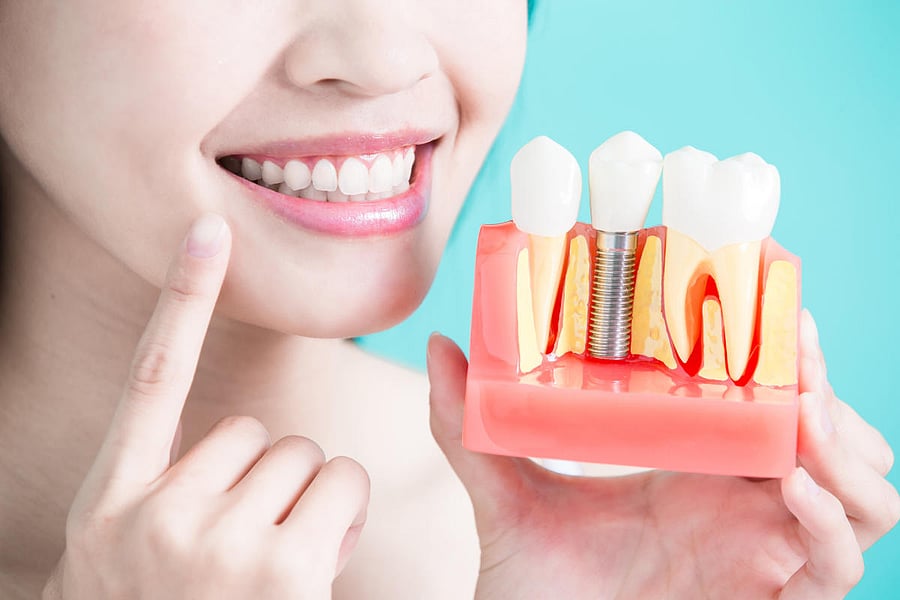
Numerous studies have shown that edentulism (loss of teeth) is a major problem in India. Common causes of teeth loss include untreated gum infections and cavities, medical conditions like diabetes, neglect, and also, for the most part, lack of awareness. Edentulism, in turn, gives rise to an inability to chew healthy foods, leading to poor nutrition. People with missing teeth struggle with activities like eating, talking, smiling or interacting confidently in public due to their appearance.
Easy replacement
A stable and easy solution for the replacement of lost teeth is dental implants. Complete dentures or partial dentures have been the traditional way of replacing missing teeth, but this method just provides false teeth and does not rehabilitate its functionality. Even the conventional technique of crown and bridge using natural teeth had the disadvantage of trimming down good teeth.
Hence, to counter the above issues, current-day dentistry uses dental implants to cater to all the above requirements. Dental implants are titanium root-like foundations that are placed in strategic positions in the jawbone by an implantologist. The bone then grows and fuses around these implants holding it firmly in its place, thus providing a strong anchor for the attachment of the dental prosthesis.
In cases where only a few teeth are missing, these teeth are replaced by using fixed implant-supported single crowns or bridges. In cases where all the teeth are missing, there are several options with an implant-supported prosthesis. Implant overdenture is a simple and economical way of providing stable teeth in an edentulous jaw, and this is the simplest treatment of choice currently. It is an appliance that is securely attached to the top of dental implants using various attachments.
Implant overdentures can be removed easily by the user and yet when snapped back on, are very stable, retentive and smaller-sized in the mouth. With this, activities like eating, chewing and talking will be easier for the person sans the discomfort of denture ulcers or the fear of dentures falling out while talking, sneezing or coughing in public.
As good as natural
The next level of rehabilitation of a fully edentulous mouth is done with fixed full-arch bridges or hybrid prosthesis wherein replacement teeth are permanently fixed on the dentures without the necessity of removing it on a daily basis. This is the closest thing to having a set of natural teeth in the mouth and could be considered as the third set of teeth in a person’s lifetime.
Newer designs and types of dental implants and newer techniques have the advantage of making these procedures highly successful, more predictable, painless, and have a faster completion time. The newer types of implants and techniques like computer-guided surgeries, zygomatic or pterygoid implants, tilted implants, mini and basal implants have the added advantage of treating people with less bone, with graftless solutions and avoiding major bone grafting procedures.
Older individuals and people with certain health complications, after a thorough examination, can also undergo these procedures. These next generation of implants are also economical and offer an affordable solution to patients.
Finally, any person who has gone from using dentures or having no teeth to using either an implant overdenture or fixed implant-supported prosthesis can attest to the joy of being able to satisfactorily chew a piece of roti or the pleasure of being able to taste a cup of hot coffee.
(The author is a periodontist &implantologist, American Smiles Dental Clinic)